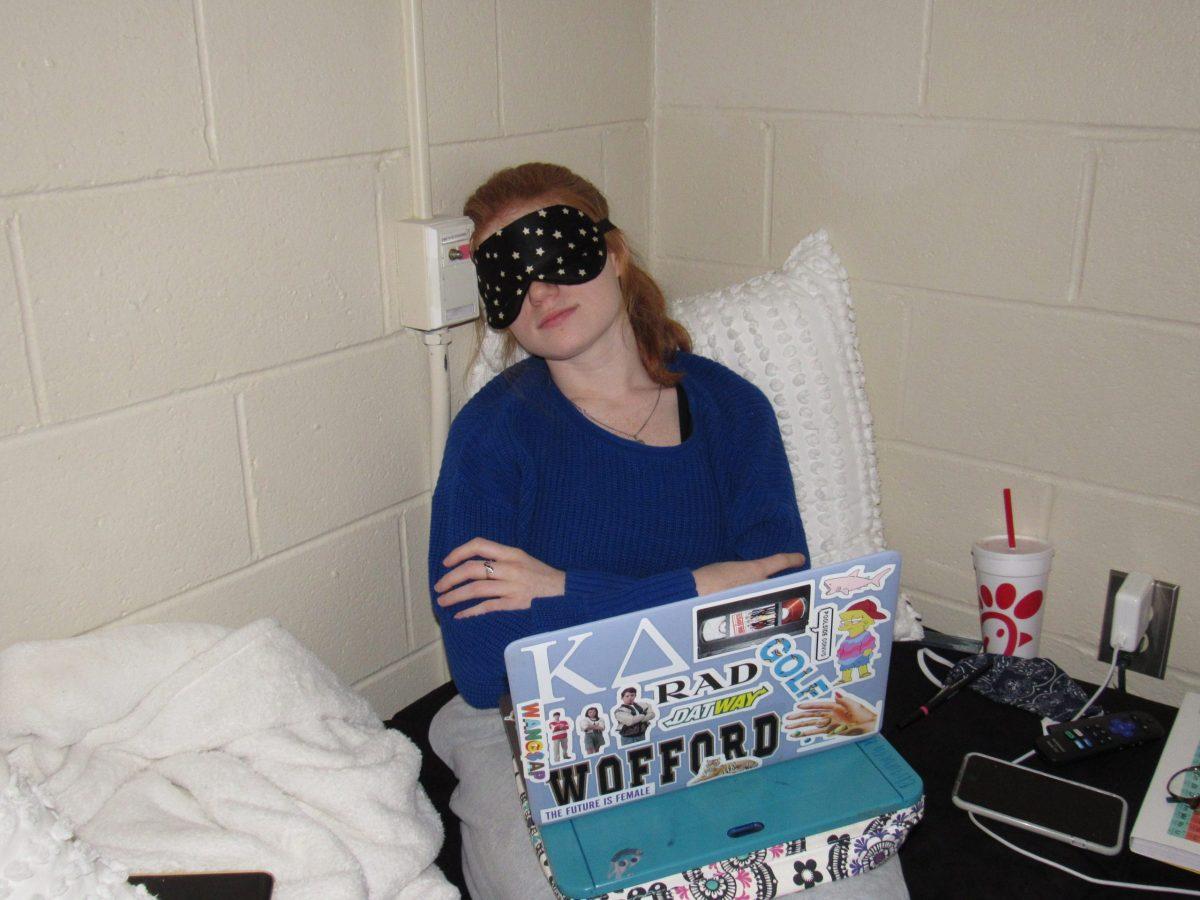Eat, sleep, zoom, repeat
Eat, sleep, Zoom, repeat.
This seems to be the rhythm of life for a COVID-19 college student. When asked on average how many hours a day they spend on Zoom, some Wofford students reported spending an average of 1-5 hours on Zoom per day with the majority of students reporting spending an average of 4 hours per day on Zoom.
This number can be explained by the increased number of virtual classes combined with virtual club and organization meetings. As a result of spending more time on Zoom, students are having to combat the new issue of fighting distractions as well as Zoom fatigue.
Because students are spending so much of their time on Zoom calls, it can be easier to get distracted. Raven Tucker ’21 reported that she noticed that she becomes distracted during Zoom calls by “texts, social media, my thoughts and other homework.” Rik Ujaan ’21 further elaborated on easily being distracted during zoom by explaining that “there is no accountability that prevents me from not paying attention.”
Franny Ford ’21 shared that she tries to prevent distractions by putting “Zoom on a desktop by itself” and that she tries “to clear my desk of anything but a notebook and computer.” Similarly, Chrestman Rainey ’22 said he prevents distractions by “locking the door to my room and putting away anything that could possibly distract me.”
According to Liz Fosslien, a writer for the Harvard Business Review, “Zoom fatigue stems from how we process information over video,” which reveals that video calls are mentally taxing for multiple reasons. First, video calls force people “to focus more intently on conversations in order to absorb information.”
Additionally, she explained that it can be easier to become distracted on the computer by emails, texts, and games. Lastly, on virtual video calls, one has to constantly be looking into a camera and the “constant gaze” is unnatural and distracting.
In order to combat Zoom fatigue, Marlen Ramirez-Alvarado ’24 says that she likes to “turn off my camera and stretch for a couple of seconds.” Likewise, Jaheem Hazel ’23 shared that he frequently “tries to change my setting.” Lastly, Jeremy Powers ’21 said that he likes to “try to do zoom outside” whenever the weather permits.
Fosslien further explained that ways to combat Zoom fatigue include avoiding multitasking as “switching between tasks can cost you as much as 40 percent of your productive time.” Also, she suggested building in breaks in order to “give yourself enough time in between meetings to get up and move around a bit.”
Marissa Shuffler, an expert in teamwork effectiveness, suggested “limiting video calls to those that are necessary” and “turning on the camera should be optional and in general there should be more understanding that cameras do not always have to be on throughout each meeting.”






























